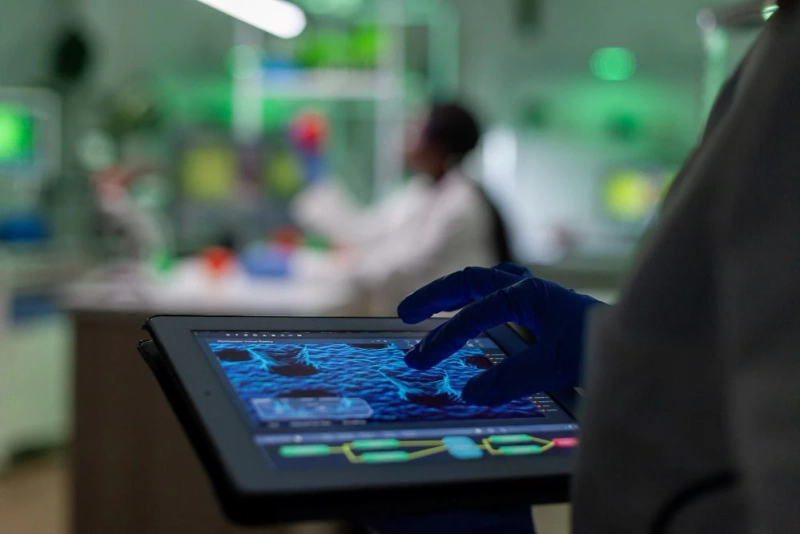The use of artificial intelligence (AI) is making a big difference in medicine. Now, AI is helping scientists find new antibiotics, something that hasn’t happened in 60 years.
Scientists discovered, a new substance that can kill a type of bacteria that’s resistant to drugs. This bacteria causes the deaths of thousands of people worldwide every year. This discovery could be a crucial moment in the fight against antibiotic resistance.
James Collins, a professor at the Massachusetts Institute of Technology (MIT) and one of the study’s authors, stated that they used AI to figure out which molecules would be good antibiotics.
Our research offers a framework that is quick, uses resources wisely, and provides insights into mechanisms from a chemical structure perspective, which we haven’t had before.
The findings were released today in the journal Nature and were a collaborative effort involving a team of 21 researchers.
The Study Wanted to Understand How Things Work Inside
The project’s team utilized a deep-learning model to forecast the effectiveness and potential harm of the new compound.
Deep learning employs artificial neural networks to learn and understand features from data automatically, without specific programming.
This approach is becoming more common in drug discovery, helping speed up the identification of potential drugs, anticipate their characteristics, and improve the drug development process.
In this instance, the scientists concentrated on methicillin-resistant Staphylococcus aureus (MRSA).
MRSA infections can vary from minor skin issues to more serious and possibly life-threatening conditions like pneumonia and bloodstream infections.
Every year, about 150,000 MRSA infections happen in the European Union. Additionally, nearly 35,000 people die annually in the bloc due to antimicrobial-resistant infections, as reported by the European Centre for Disease Prevention and Control (ECDC).
The team of researchers at MIT trained a significantly expanded deep learning model using larger datasets.
To generate the training data, approximately 39,000 compounds were assessed for their ability to combat MRSA. Afterward, both the resulting data and information about the chemical structures of the compounds were fed into the model.
Felix Wong, a postdoc at MIT and Harvard and one of the study’s main authors, explained, “Our goal in this study was to demystify the process. These models involve a large number of calculations resembling neural connections, and no one really knows the inner workings.”
Discovering a New Compound
To improve the choice of potential drugs, the researchers utilized three extra deep-learning models. These models were taught to evaluate the harmful effects of compounds on three different types of human cells.
By combining these toxicity predictions with the previously identified antimicrobial activity, the researchers identified compounds that could effectively fight microbes with minimal harm to the human body.
With this group of models, around 12 million commercially accessible compounds underwent screening.
The models identified compounds from five diverse classes, sorted according to particular chemical substructures within the molecules, showing anticipated activity against MRSA.
Afterward, the scientists obtained approximately 280 of these compounds and performed experiments against MRSA in a lab setting. This method allowed them to discover two potential antibiotic candidates from the same category.
In trials using two mouse models, one for MRSA skin infection and another for MRSA systemic infection, each of these compounds decreased the MRSA population by a factor of 10.
Summary
MIT researchers, with the help of AI, found new antibiotics, something not done in 60 years. Their study, in Nature, uses smart AI to speed up drug discovery, giving hope against antibiotic resistance. With 21 collaborators, this research makes AI easier to understand, offering promise for better healthcare and saving lives.



